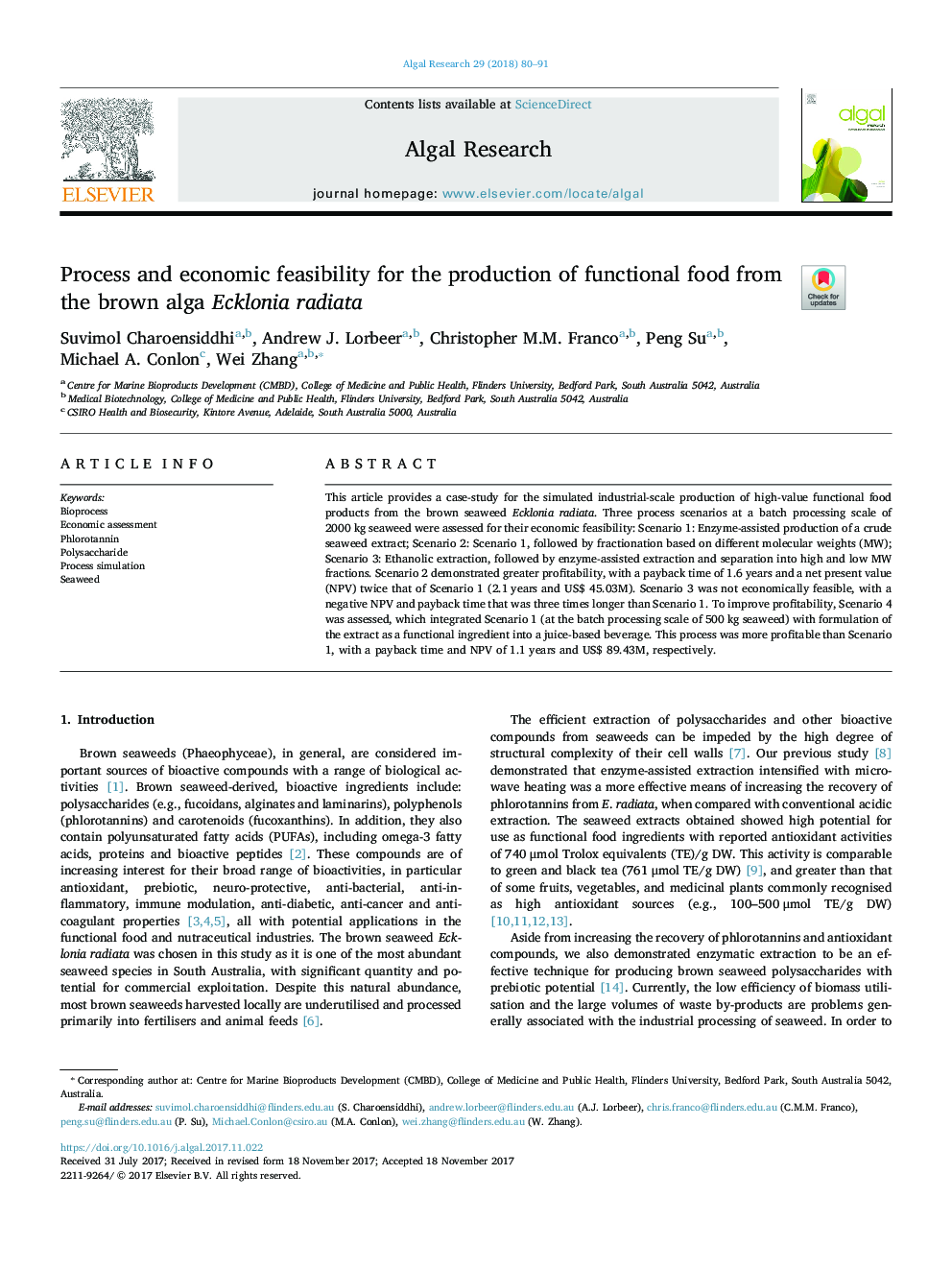| Article ID | Journal | Published Year | Pages | File Type |
|---|---|---|---|---|
| 8086357 | Algal Research | 2018 | 12 Pages |
Abstract
This article provides a case-study for the simulated industrial-scale production of high-value functional food products from the brown seaweed Ecklonia radiata. Three process scenarios at a batch processing scale of 2000Â kg seaweed were assessed for their economic feasibility: Scenario 1: Enzyme-assisted production of a crude seaweed extract; Scenario 2: Scenario 1, followed by fractionation based on different molecular weights (MW); Scenario 3: Ethanolic extraction, followed by enzyme-assisted extraction and separation into high and low MW fractions. Scenario 2 demonstrated greater profitability, with a payback time of 1.6Â years and a net present value (NPV) twice that of Scenario 1 (2.1Â years and US$ 45.03M). Scenario 3 was not economically feasible, with a negative NPV and payback time that was three times longer than Scenario 1. To improve profitability, Scenario 4 was assessed, which integrated Scenario 1 (at the batch processing scale of 500Â kg seaweed) with formulation of the extract as a functional ingredient into a juice-based beverage. This process was more profitable than Scenario 1, with a payback time and NPV of 1.1Â years and US$ 89.43M, respectively.
Related Topics
Physical Sciences and Engineering
Energy
Renewable Energy, Sustainability and the Environment
Authors
Suvimol Charoensiddhi, Andrew J. Lorbeer, Christopher M.M. Franco, Peng Su, Michael A. Conlon, Wei Zhang,
